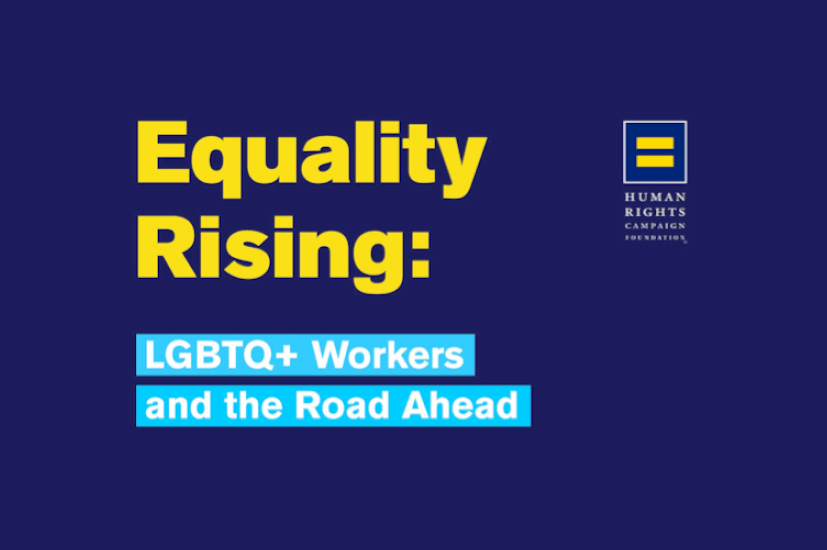In 2023, the Human Rights Campaign (HRC) worked with PSB Insights to explore the experiences and challenges faced by LGBTQ+ workers in America. The survey covers topics related to authenticity, safety, values, discrimination, and more. The research surveyed 3,044 adult workers in the United States, inclusive of 2,002 LGBTQ+ workers and 1,042 non-LGBTQ+ workers to inform this foundational work.
Check out the full report here.
Key Findings:
- Authenticity. The vast majority of LGBTQ+ workers are out to at least one person at work; however, they are not equally out across all workplace settings, indicating a potential trust gap. LGBTQ+ workers are least likely to be out to Human Resources departments, and most likely to be out to their closer colleagues.
- Safety. LGBTQ+ workers may choose to hide their LGBTQ+ identities at work for various reasons, including concerns related to privacy, safety, status and discrimination.
- Company values. The majority of LGBTQ+ workers and non-LGBTQ+ workers alike believe their employer values diversity in sexual and gender identity. However, LGBTQ+ workers are less likely than non-LGBTQ+ workers to believe this, with the gap significantly larger when it comes to perceived values around gender and sex.
- Values in action. Values do not always translate into action. LGBTQ+ workers were less likely than non-LGBTQ+ workers to view their workplace as accepting of LGBTQ+ identities, with a much bigger gap seen for perceived acceptance of gender diversity.
- Workplace discrimination. For too many LGBTQ+ workers, discrimination and unwelcoming environments have led to an inability to advance in their job, or for them to lose — or be forced to leave — their job altogether.
- Privacy. Half (51%) of LGBTQ+ workers have previously been closeted at work due to privacy concerns.
- Loss of status at the workplace. Three in ten (29%) of LGBTQ+ workers have previously been closeted on the job because they thought their status at work would be negatively impacted.
- Discrimination and lack of protections. Nearly one-quarter (23%) of LGBTQ+ workers have been previously closeted at work because of fears of discrimination or because there were no policies protecting LGBTQ+ people at their workplace.
- Violence, stigma, and victimization. Four in ten (40%) LGBTQ+ workers have previously been closeted at work because of actual or perceived risk of violence, stigma and victimization.
For more information, please contact Amy Crosby at acrosby@psbinsights.com



